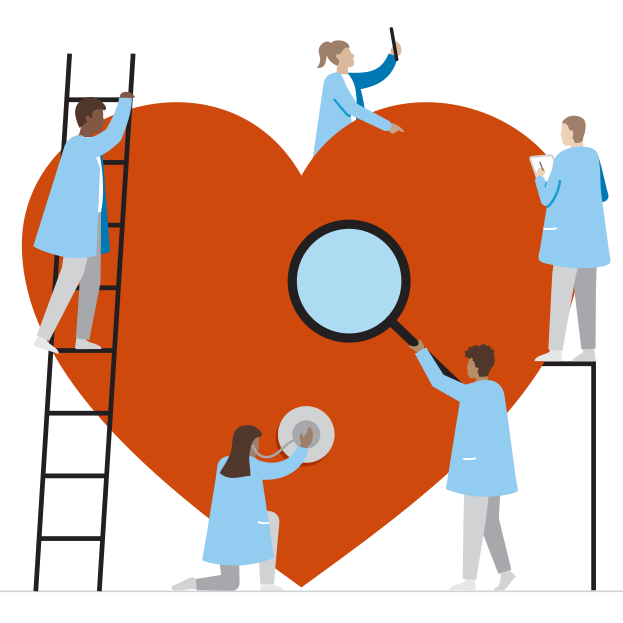A heart-healthy lifestyle is a way of living that helps keep your heart and blood vessels healthy. This helps lower your risk of a heart attack and stroke. It can also improve the quality and length of your life.
Here are some healthy lifestyle choices you can make to keep your heart in top shape:
- Enjoy a healthy diet. Heart-healthy diet guidelines suggest limiting sodium and eating low-fat, high-fiber foods. This includes eating fresh fruits and vegetables, fresh fish and poultry, and whole grains, rice, and noodles. Make sure to manage your portions, try to eat every 3 to 4 hours, and choose healthy snacks.
- Get moving. Aim to be physically active for at least 30 minutes most days of the week. Use a physical activity log to track and celebrate your progress.
- Rest up for your heart. Get at least 7 hours of sleep each night. Keep a sleep journal to help you stay on track and feel your best.
- Stay at a healthy weight. This might mean losing weight, gaining weight, or maintaining a healthy weight. Keep a weight log to track your progress and see how your body responds to your lifestyle changes.
- Quit smoking. It’s not easy but it’s one of the best things you can do for your health. Help is available so you can quit and be successful.
- Limit alcohol intake. Men should have no more than 2 drinks a day. Women should have no more than 1 drink a day.
Making healthy changes can be tough, especially at first. But don’t worry, your doctor and our many wellness resources are here to help. You can join health classes2 in your area, participate in healthy lifestyle programs, or get one-on-one wellness coaching. Together, let’s strive for a healthy heart and a healthy future.









